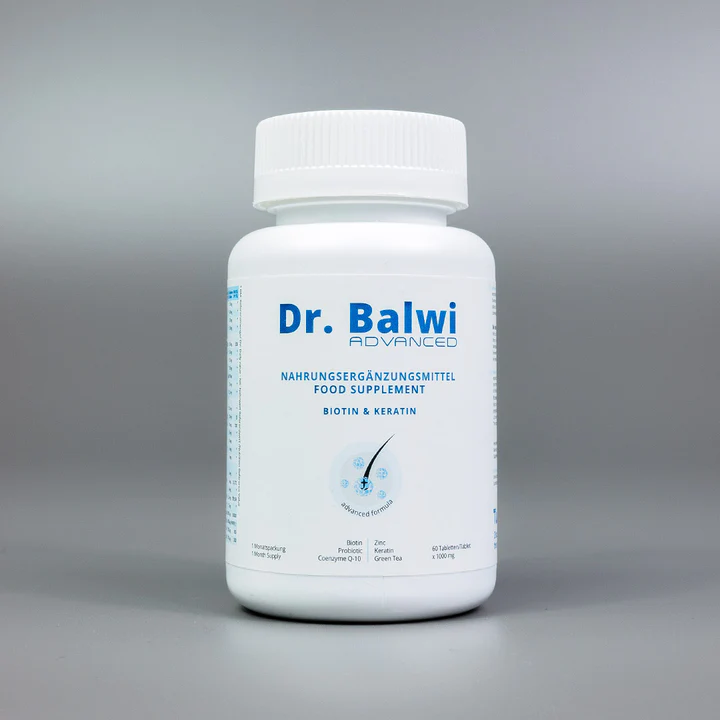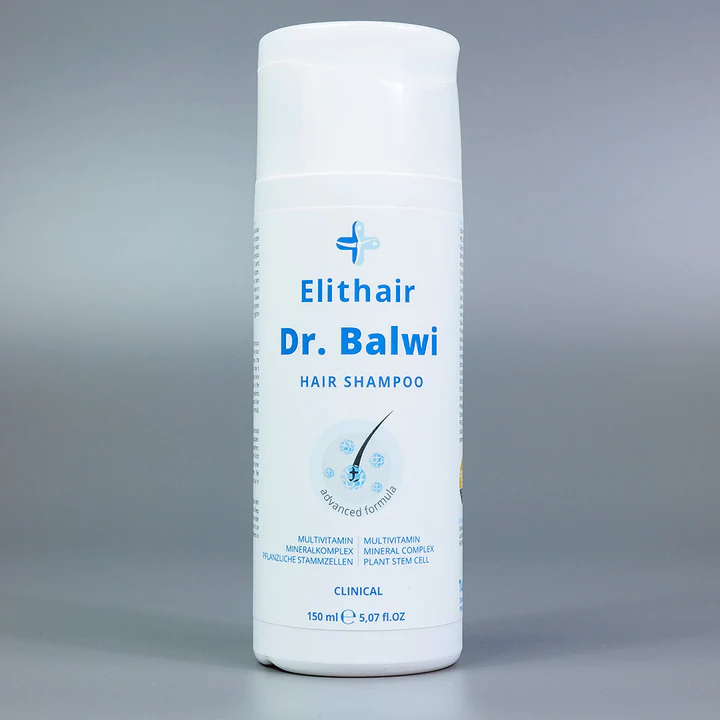
Thyroid Hair Loss: The Causes and Solutions
The hair, skin, and nails of a person are excellent indicators of internal health – if the body receives the right amount of nutrients, all systems work together and external factors can be sufficiently supported so hair can look great, shine and grow rapidly.
But if something happens in the body to upset the balance of nutrients, it can lead to diseases, which can invariably affect the health of your hair as the body must prioritise other more important functions. One of the many common causes of hair loss is thyroid disease and here we will look at the causes and symptoms of thyroid conditions.
Summary
- What is the Endocrine System?
- Thyroid Hormones
- Thyroid Hair Loss
- Treatments of Thyroid Hair Loss
- Conclusion
What is the Endocrine System?
In the body, 12 vital systems operate in sync with each other and closely work together to maintain your health. The suspension in the work of at least one of them immediately affects your overall health.
The endocrine system is the glands that produce hormones that are carried throughout the body by the circulatory system. These enter all organs and tissues, penetrating inside each cell. A part of the endocrine cells forms the glands of internal secretion. The endocrine system affects the vital activity of the whole body and participates in basic metabolic processes.
The function of the thyroid
The thyroid gland is the most important part of the endocrine system and is responsible for the production of hormones that support homeostasis. In other words, thyroid hormones keep the balance of all bodily systems. Accordingly, if there is a change in these hormones, then it hits all systems with a range of side effects, including causing hair loss.
Treatment of diseases of the thyroid gland are treated by a doctor specialising in endocrinology. Tests for thyroid function should be performed annually even if you are healthy with the goal of preventing diseases.
Thyroid Hormones
Thyroid iodine-containing hormones are thyroxine and triiodothyronine. A continued excess rate of such hormones is called thyrotoxicosis – an increase in thyroid function. Significant excess hormone levels can point to serious diseases, the symptoms of which can be hair loss.
In order to determine the level of hormones in the blood, you must go through proper tests for the appointment of an endocrinologist. People with thyroid issues can be of any age and occur in any sex. However, women older than 35 are most at risk. This is because the female body obeys certain biorhythms (menstruation, pregnancy, menopause) and experiences regular hormonal shifts.
Different types of thyroid conditions
Thyroid conditions are caused by over or, conversely, under production of iodine-containing hormones. Therefore, thyroid autoimmune conditions are divided into two groups:
- Hypothyroidism – a decrease in thyroid function;
- Hyperthyroidism – excessive activity of the thyroid gland.
Thyroid Hair Loss
Hyperthyroid hair loss
At abnormally high levels of thyroid hormones, iron levels increase and the patient experiences general weakness, weight loss along with rapid heart rate. The disease is almost always accompanied by thyroid related hair fall across the scalp and hair grows grey in some cases.
This disease usually has an autoimmune origin, that is, your own immune system starts to be hostile to your own body, rejecting the tissue. Therefore, thyrotoxicosis often starts with hair loss as the cells fight the hair follicles. Some of these diseases include Graves’ disease, in which the hair becomes brittle, dull and follicles are depleted therefore no longer producing new hairs.
The absence of treatment can lead to total alopecia. The disease can also lead to hair loss on other parts of the body including your eyebrows and eyelashes. Elevated levels of thyroid can be caused by the use of high content iodine-containing products. Treatment is typically advised by an endocrinologist based on the results of the hormone level blood tests.
Hypothyroid hair loss
Symptoms of thyroid deficiency include constant fatigue, increase in body weight, fluid retention in the body, problems with the gastrointestinal tract and an intolerance to extremes in weather conditions.
Hormonal changes affect the life cycle of the hair, having a detrimental effect on their growth and development. With hypothyroidism, thinning hair is common along with the eyelashes and eyebrows beginning to grow very slowly and the overall appearance of the hair and skin also looking unhealthy.
According to research, hair loss is due to the fact that during hormonal adjustment many hair follicles cannot go from the resting phase to the active growth phase due to the lack of normal metabolism in the cells. After a while, if they stay in the sleep stage, the follicles simply stop growing. In addition, a slow metabolism leads to a lack of vitamins and trace elements, necessary for hair growth. This is how untreated thyroid issues can lead to long term hair loss.
Treatment of Thyroid Hair Loss
If in addition to problems with this type of hair loss, you observe other symptoms related to a thyroid problem you should immediately consult a doctor and go through thyroid tests.
Treatment of hair loss is carried out in parallel with the normalization of thyroid function. Otherwise, no positive results are expected. Therefore, properly observe all the appointments of the endocrinologist and trichologist. In the treatment of thyroid disorders, hair loss can increase during the first month. This can lead to a wrong diagnosis of the medication as the cause of the hair loss. However this tends to stop after the initial adjustment period and hair health should improve following this.
Complex treatment and restoration of the hair cover includes diet changes to ensure you are getting enough vitamins, scalp massage, taking medications and using special products that can be bought over the counter at the pharmacy.
Conclusion
Thyroid hair loss can be prevalent among women and can be difficult to detect. The symptoms of hyperthyroidism and hypothyroidism are quite similar meaning it can be difficult to independently determine if there is an excess or deficiency in your system. Consulting a doctor for medical advice is crucial to understanding if you are experiencing a thyroid disease.
When it comes to treatment, always follow your doctors recommendations. When it comes to improving your diet, why not try our Biotin and Keratin supplement specifically designed to improve hair health. Our unique formula provides your hair with the necessary nutrients to grow stronger and provide an improved healthy appearance.
Do you have more questions or are you looking for a permanent solution to your hair loss? Then don’t hesitate to contact our friendly team to answer all your queries about getting a hair transplant. Furthermore they can also offer a free and non binding hair analysis.



